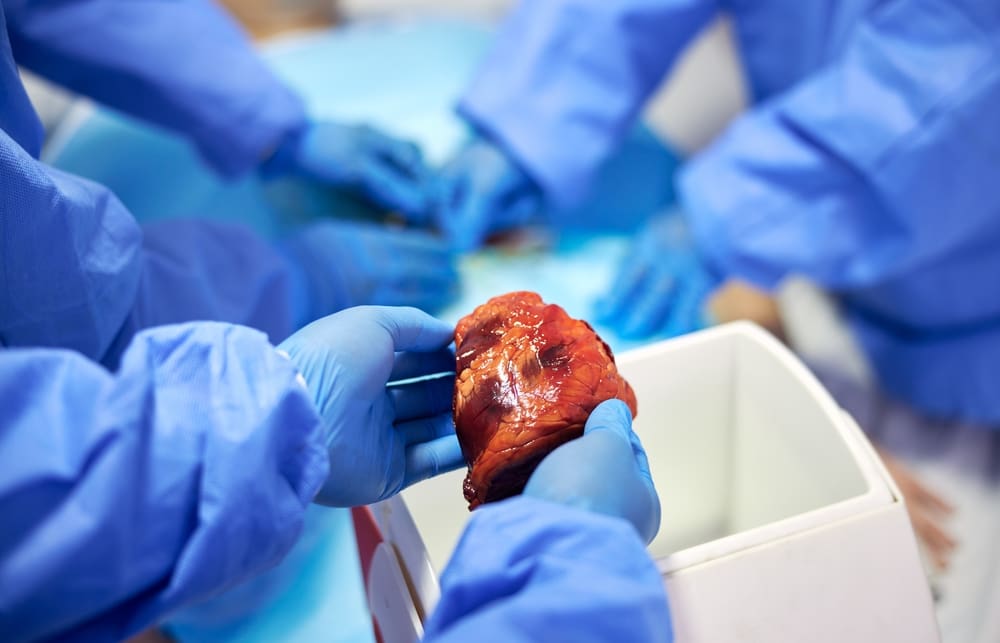Registering for an organ transplant is a critical step for patients facing serious health conditions that necessitate a new organ to save or significantly improve their quality of life. This process can be complex, requiring detailed understanding and preparation. This article aims to guide you through the process of registering for an organ transplant successfully, providing essential information and tips to navigate this journey.
Understanding the need for an organ transplant
Before diving into the registration process, it’s crucial to understand when and why an organ transplant might be necessary. Organ transplants are required when an individual’s organ is failing or damaged beyond repair due to illness or injury. The most common organs transplanted include the kidney, liver, heart, lungs, pancreas and intestines.
Preliminary steps
1. Consultation with your health care provider
The first step in the organ transplant process is a thorough consultation with your health care provider. They will evaluate your medical condition, discuss the potential benefits and risks of a transplant and determine if it is the most suitable course of action for your situation.
2. Choosing a transplant center
If you are considered a good candidate for a transplant, the next step is to select a transplant center. Consider factors like the center’s experience, success rates and support services. It’s also important to ensure the center is covered by your health insurance.
Registration process
1. Evaluation at the transplant center
Once you choose a transplant center, you’ll undergo a comprehensive evaluation to assess your eligibility for a transplant. This includes medical tests, psychological evaluation and discussions about your support system during and after the transplant.
2. Getting on the transplant waiting list
If you’re deemed eligible, the transplant center will add you to the national transplant waiting list, managed by the United Network for Organ Sharing (UNOS) in the United States. Your place on this list is determined by several factors, including blood type, body size, how sick you are and how long you’ve been waiting.
Maximizing your chances for a successful transplant
1. Stay Healthy
Maintaining your health is crucial while you wait for an organ. Follow your health care provider’s advice, eat a balanced diet, stay active and manage your stress levels.
2. Be prepared
Have a plan for when you get the call that an organ is available. Know how you’ll get to the transplant center quickly and what you need to bring.
3. Consider living donation
For certain organs, like kidneys and parts of the liver, you might be able to receive an organ from a living donor. This can significantly reduce waiting times and improve outcomes.
After the transplant
1. Post-transplant care
After the transplant, you will need close follow-up care to monitor for complications, adjust medications and ensure the success of your new organ. This includes regular checkups, lab tests and adherence to a prescribed medication regimen.
2. Lifestyle adjustments
Post-transplant, you’ll need to make several lifestyle adjustments to protect your new organ. This includes maintaining a healthy lifestyle, avoiding infections and possibly modifying your diet.
3. Emotional and psychological support
The journey through organ transplant can be emotionally challenging. Seek support from family, friends, support groups or professional counselors to navigate the emotional ups and downs.
Embarking on the path to register for an organ transplant is indeed a profound journey, one that necessitates an abundance of patience, meticulous preparation, and unwavering support. Grasping the intricacies of the transplant process is fundamental; it empowers you to make informed decisions and approach each step with confidence. Staying in optimal health is crucial during this period — not just physically, but emotionally and mentally as well. Your readiness to adapt swiftly when an organ becomes available can significantly influence the outcome of your transplant journey.
Engagement with your health care team is essential; their expertise and guidance are your beacons in navigating the complexities of the organ transplant system. Cultivate a relationship of trust and open communication with them, ensuring that you’re always well-informed and prepared for what lies ahead.
Moreover, embracing a positive outlook is vital. Each step forward — no matter how small — is progress towards a renewed life. This journey, while daunting, holds the promise of a fresh start and the restoration of health. By staying informed, proactive and supported by a community of care, your journey through the organ transplant process can lead to a successful transplant, offering you a new lease on life that brims with hope and possibility.
This story was created using AI technology.














